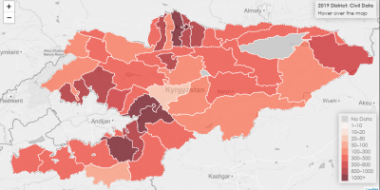IDLO wins USAID Digital Development Award for e-justice achievements in Kyrgyzstan
The United States Agency for International Development (USAID) has granted IDLO a prestigious Digital Development Award for its support to the judiciary in the Kyrgyz Republic.















